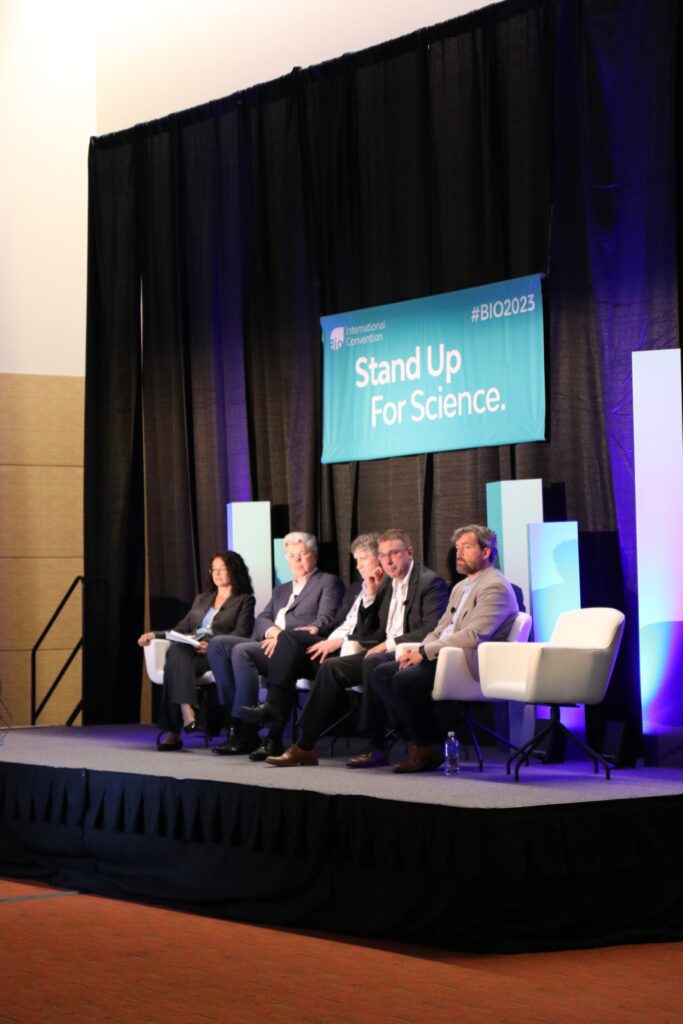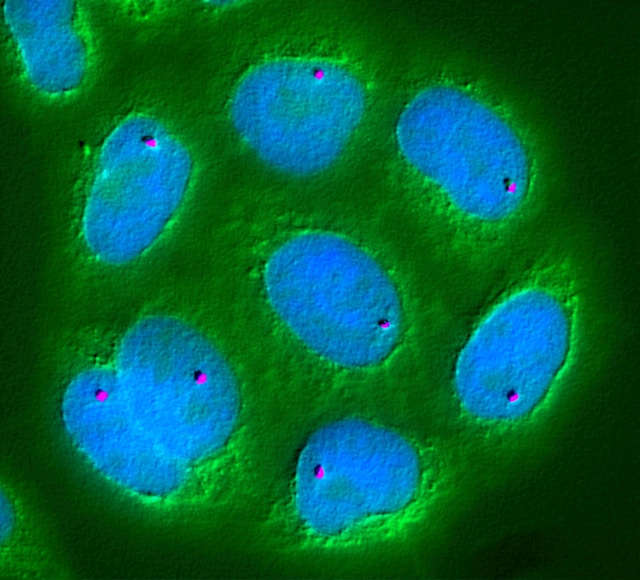Antimicrobial resistance is one of the biggest global health challenges we face. Superbugs were linked to almost 5 million deaths worldwide in 2019, and without new antimicrobials, we could see as many as 10 million deaths from AMR per year by 2050.
The challenge? Like many drugs, antimicrobials are expensive and time-consuming to develop—but once we do, good antibiotic stewardship practices actively discourage their use.
Furthermore, when we develop new antibiotics, “as soon as we start using them, the bacteria respond,” said Kevin Outterson, Executive Director of CARB-X, in an interview during the 2023 Biotechnology Innovation Organization (BIO) International Convention.
Government funding and programs, particularly those funded by the Biomedical Advanced Research and Development Authority (BARDA), are key to getting new antimicrobials through the pipeline.
But we need to do more, current and former BARDA officials agreed during a panel session.
‘We need to be scared’
Moderator Amanda Jezek, SVP of Public Policy and Government Relations at the Infectious Diseases Society of America (IDSA), began by telling the audience about healthy patients who unsuccessfully battled drug-resistant infections—including an active and healthy 12-year-old girl who ultimately needed a double lung transplant after her infection.
“We need to be scared—we need to be scared enough to take action,” she said.
BARDA has been working on this challenge since starting the antibacterials program in 2010. The original intent was to support the late-stage development of new antimicrobials, explained Chris Houchens, Ph.D., Director of BARDA’s Chemical, Biological, Radiological & Nuclear (CBRN) Medical Countermeasures Division. BARDA has since invested over $1.6 billion in 150 antibacterial products. These products are developed and funded by three programs:
- Combating Antibiotic-Resistant Bacteria Biopharmaceutical Accelerator (CARB-X), a public-private partnership to accelerate antibacterial products;
- The Advanced Research and Development (ARD) portfolio; and,
- Project BioShield, which targets potential bioterrorism weapons.
President Biden’s FY2024 budget calls for increasing the commitment to antimicrobial R&D by way of a novel payment mechanism to delink volume of sales from revenue for newly approved antimicrobial drugs and biological products that address a critical unmet need – akin to the PASTEUR Act – which could also help ensure appropriate stewardship, explained Jezek.
But we need to do more, panelists agreed.
Without BARDA, ‘we cannot exist’
“As you move [a new antimicrobial] into the clinic, it gets more and more expensive,” said Christopher Burns, President and CEO of Venatorx Pharmaceuticals. The company has two products for multi-drug-resistant bacteria, like hard-to-treat urinary tract infections and hospital-acquired bacterial pneumonia, in the pipeline.
Getting a drug to phase 3 can “get into the $200 million range quickly,” said Burns.
Venatorx has received two large BARDA contracts. “Without them, we cannot exist,” he said.
Even with this support, however, many biotechs find it difficult to fund the approval and post-approval process for these products due to the uniquely broken marketplace for antimicrobials. BARDA can support post-approval through procurement, but there are just “not that many contracts available,” he continued.
Joe Larsen, Vice President of Clinical Development at Locus Biosciences, Inc.—who previously oversaw Project BioShield at BARDA—agreed on both points.
Project BioShield “was not built to revitalize the AMR pipeline,” but to develop products targeting potential bioterrorism weapons.
“BioShield works great,” but “more is needed, and I think ultimately there is a whole bevy of innovative technologies” that are not eligible because Project BioShield requires a product to have activity against at least one of five specific bacterial bioterrorism threats.
Why we need the PASTEUR Act (and other legislation like it worldwide)
Despite the challenges for development, the pre-clinical pipeline is quite robust, said CARB-X’s Kevin Outterson. However, if these promising products reach Food and Drug Administration (FDA) approval, the marketplace for critically needed antimicrobials still remains broken.
This is why we need to pass the Pioneering Antimicrobial Subscriptions to End Upsurging Resistance (PASTEUR) Act, speakers agreed.
In contrast to federal programs, the PASTEUR Act would be codified into law, and thus harder to roll back as the policy winds change, explained Larsen. “The money set aside and criteria are ultimately clear to everybody, including investors.”
And it’s not just the U.S. taking action. “Every G7 government is actively looking at [antimicrobial pull incentives],” including Canada, the EU, and Japan, added Outterson.
When the UN holds a high-level meeting on AMR in 2024, “I want the U.S. to be able to say” we’ve passed PASTEUR, said Jezek. “I’ve never seen the level of excitement that I’ve seen around PASTEUR,” with a nearly even number of Republicans and Democrats supporting it. There’s “reason for all of us to be very optimistic.”
Furthermore, PASTEUR is “not a giveaway to big pharma,” she said, debunking a frequent (and false) line of criticism. “Actually, it’s the small biotechs” leading the way on AMR. The bill is very clear about targets, and the more criteria the drug meets, the higher the PASTEUR contract will be valued, ensuring the policy supports “truly novel, innovative products that will make a real clinical difference.”
“PASTEUR is such a good idea even Congress might do it,” quipped Outterson. “You don’t often see things that are so bipartisan.”
After all, he said: “Bacteria would like to kill Republicans and Democrats.”
Watch: PASTEUR Act sponsor Sen. Todd Young (R-IN) greeted attendees at the start of the panel:




